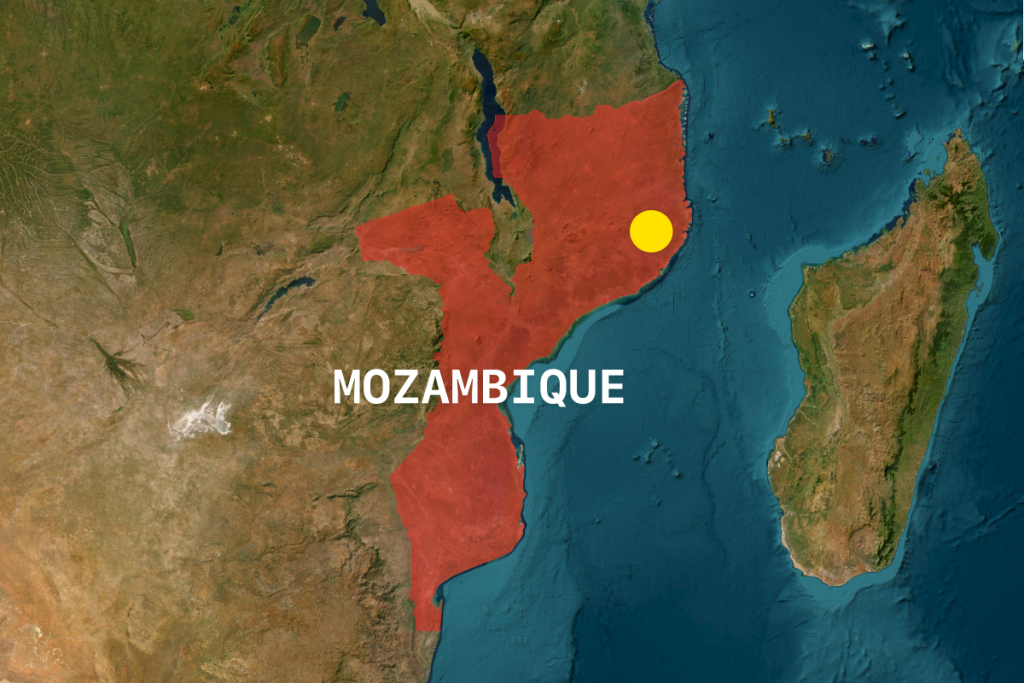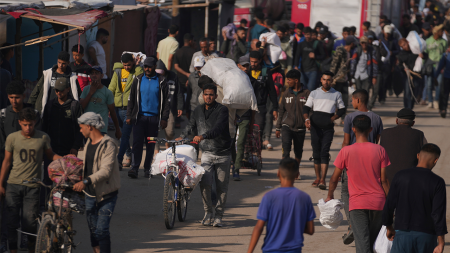Cyclone Dikeledi, a recent meteorological tempest, has wreaked havoc in Mozambique’s northern province of Nampula, leaving a trail of destruction and claiming the lives of five individuals. The storm, which struck the region with ferocious winds and torrential rains, has exacerbated existing vulnerabilities in a nation already grappling with the aftermath of Cyclone Chido just a month prior. The cumulative impact of these consecutive cyclones has left nearly half a million people affected and has caused widespread damage to homes, schools, and healthcare facilities.
The force of Cyclone Dikeledi caused the tragic loss of life due to collapsing house walls, underscoring the precarious living conditions prevalent in many parts of the region. Luísa Meque, chairperson of the National Disaster Management Institute (INGD), confirmed the devastating impact of the cyclone, reporting over 35,000 individuals affected, representing more than 8,000 households. The widespread destruction encompasses over 2,900 houses destroyed and an additional 6,000 damaged, displacing thousands and leaving them vulnerable to the elements.
The cyclone’s impact extended beyond residential areas, severely disrupting essential services. Thirty-five schools suffered damage, disrupting the education of 2,562 students. Three health facilities were also rendered inoperable, further hindering the community’s access to crucial medical services in the wake of the disaster. Critical infrastructure was not spared, with 82 electricity pylons toppled, disrupting power supply to affected areas, and 127 hectares of cultivated land inundated with floodwaters, jeopardizing food security.
Mozambique’s vulnerability to extreme weather events has been tragically highlighted in recent years by a series of devastating cyclones. Cyclone Chido, which struck just a month before Dikeledi, claimed over 100 lives in Mozambique and Malawi, further adding to the region’s woes. The 2019 Cyclone Idai and the more recent Cyclone Freddy in 2024, both catastrophic events resulting in significant loss of life and widespread destruction, serve as grim reminders of the increasing frequency and intensity of such storms.
The recurrent cyclonic onslaughts underscore the urgent need for robust climate-resilient infrastructure and comprehensive disaster preparedness strategies. Meque emphasized the necessity of employing resilient building materials in construction to enhance the structural integrity of homes and mitigate the impact of future cyclones. The INGD is collaborating with affected communities to explore sustainable construction methods that can withstand the force of extreme weather events. This collaborative effort aims to find lasting solutions to reduce the vulnerability of communities to future climate impacts.
International organizations like UNICEF are actively engaged in providing relief and support to the affected population. Mary Louise Eagleton, UNICEF Mozambique Representative, highlighted the devastating impact of Cyclone Dikeledi on an already vulnerable nation struggling to recover from the effects of Cyclone Chido. The combined impact of these two storms has created a humanitarian crisis, demanding a comprehensive and coordinated response to address the immediate needs of the affected communities. Relief efforts are underway, with authorities and humanitarian organizations working tirelessly to provide assistance to survivors and assess the full extent of the devastation. The focus remains on providing shelter, food, water, and medical assistance to those in need, while simultaneously working on long-term recovery and resilience-building initiatives. The international community’s support is crucial in helping Mozambique navigate these challenging times and rebuild its communities in a more sustainable and climate-resilient manner.










